Tips to protect yourself and your family from mosquitoes during monsoon
Educate yourself, family and friends about hazards in the rainy season:
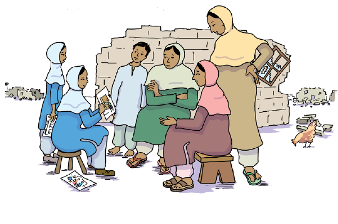
- By preparing for the monsoon season, you can minimize the impact of heavy rains, flooding, and other hazards that may arise during this time. To ensure that everyone is aware of the potential risks and knows what to do in case of an emergency, share what you learnt in your community!
Eliminate sites/areas where mosquitoes can lay eggs:
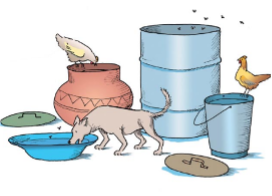
- Monsoon is the perfect breeding season for mosquitoes as they lay their eggs in stagnant water. Stagnant water refers to water that is not flowing or moving, like in a pond or a puddle that has been sitting still for a while. The best way to avoid diseases caused by mosquitos is by eliminating areas/sites like these where mosquitoes can lay eggs. Here is how you can do this:
- Remove stagnant water: Stagnant water, either fresh or dirty is the best breeding place for mosquitoes. Remove any water that has collected in containers, buckets, and other items around your home.
- Empty and scrub water containers clean to remove any mosquito eggs. Throw away, turn over, or empty container that may collect rainwater such as buckets, tires, trash containers, pools or flowerpot saucers.
- Cover water containers: Always place a tight lid on containers used for water storage (buckets, drums or tanks). Use tight-fitting lids, screens or wire mesh with holes smaller than an adult mosquito to prevent mosquitoes from laying eggs in them.
- Clean your drainage system: Make sure to clean drains and gutter regularly. Systems designed to drain water away from our homes can often retain water if they are clogged or damaged, which in return can be an ideal mosquito breeding ground.
- Dispose your waste properly: Mosquitoes can breed in discarded items such as old tires, bottles, and cans. Dispose your waste properly and regularly clean your surroundings, including gardens, yards, outdoor furniture, flowerpots and vases to prevent the accumulation of debris and potential mosquito breeding sites. It will reduce the number of breeding site for mosquitoes.
Protect yourself and your family from mosquitoes and other insects:
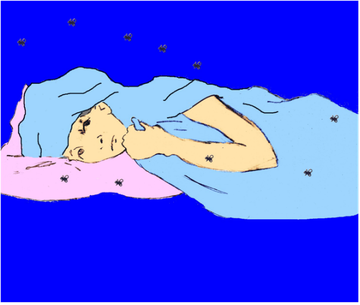
- Use mosquito repellents; electric, coil or sprays (approved for use on the skin) and wear long-sleeved shirts and pants when possible.
- When applying insect repellents, follow the instructions and guidelines provided by the specific repellent product to ensure proper and safe application. Do not spray repellent on the skin under clothing.
- Always use mosquito nets: Ensure everyone particularly children always sleep under properly hung mosquito nets, especially during the active morning and evening periods when mosquitoes are most active.
Protect babies and children from mosquitoes:
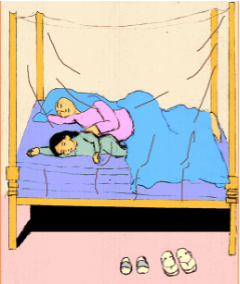
- Place a properly fitted mosquito net or screens over the baby's crib, stroller, or play area to create a protective barrier.
- Minimize exposed skin by dressing your child in long sleeves, long pants and socks.
- Use an age-appropriate mosquito repellent recommended by a healthcare professional. Products containing oil of lemon eucalyptus (OLE) or para-menthane-diol (PMD) should be avoided on children under 3 years old.
- Limit outdoor activities during dawn and dusk when mosquitoes are most active.
Which mosquito-borne diseases are commonly found in South Asia?
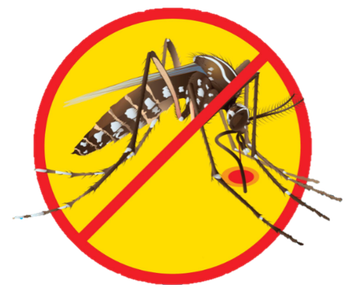
- As mosquitoes are more active in warmer weather, there are higher chances of outbreaks of dengue, a viral infection caused by a virus called dengue virus (DENV) spread by Aedes aegypti mosquitoes. This type of mosquito is a daytime feeder, meaning they are most likely to bite people early in the morning and in the early evening, just before it gets dark.
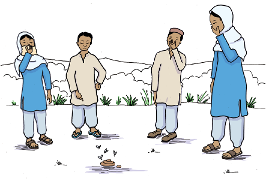
- Cholera is a leading water-borne disease that occurs during the monsoon season. Cholera is spread by eating food or drinking water that is contaminated with the bacteria called vibrio cholerae. The bacteria can be washed into drinking water supplies, which leads to contamination of water sources that the community rely on. It is an extremely virulent disease that is characterized by severe diarrhoea that can kill within hours if left untreated.
Average Rating: ☆ ☆ ☆ ☆ ☆ (0 reviews)


